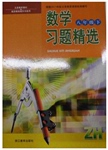题目内容
________ that the weather was to be very hot this weekend.
A. It was said in the newspaper was B. As was reported on the radio
C. What the weather report said D. It was said in the newspaper
D
【解析】

 习题精选系列答案
习题精选系列答案After more than a year of bitter political debate, President Obama sat down in the White House East Room on March 23 and signed the 2010 Patient Protection and Affordable Care Act into law with a pen,and then another pen,and another. Obama used 22 pens to sign the  $938 billion health care bill.
$938 billion health care bill.
The practice of using different pens to sign important legislation(法规)dates at least as far back as Franklin Roosevelt. The reason is fairly simple. The pen used to sign historic legislation itself becomes a historical artifact. The more pens a President uses, the more thank-you gifts he can offer to those who helped create that piece of history. The White House often give pens to supporters of the newly signed legislation. When Lyndon Johnson signed the Civil Rights Act in 1964, he reportedly used more than 75 pens and gave one of the first ones to Martin Luther King Jr. And in 1996, President Clinton gave the four pens he used to sign the Line-Item Veto bill to those most likely to appreciate the bill's consequence.
Once they're given away, some pens end up in museums; others are displayed proudly in recipients'(接受者) offices or homes. But they sometimes appear again, like in the 2008 presidential campaign(竞选活动), when John Macain promised to use the same pen given to him by President Reagan to  cut pork from the federal budget.
cut pork from the federal budget.
Not every President goes for the multipen signature, however. President George W. Bush preferred signing bills with only one pen and then offering several unuse
every President goes for the multipen signature, however. President George W. Bush preferred signing bills with only one pen and then offering several unuse d "gift" pens as souvenirs.
d "gift" pens as souvenirs.
【小题1】.We can learn from paragraph 1 that the 2010 Patient Protection and Affordable Care Act .
| A.has been passed easily |
| B.was put forward one year ago |
| C.becomes law in the USA |
| D.is unimportant |
| A.Supporters of the newly signed legislation are likely to get some of them. |
| B.Obama will keep them. |
| C.They will be just set aside |
| D.They will be sold to the public at a high price. |
A. He was ever President in the USA.
B. He took part in the 2008 presidential campaign.
C. He never used the pen given by Reagan.
D. He was only concerned about his own business.
【小题4】What does this passage mainly tell us ?[来源:学。科。网]
A. Obama signed the 2010 Patient Protection and Affordable Care Act.
B. It is a practice to use multiple pens to sign important legislation in the USA.
C. Pens are necessary in the signature.
D. All the presidents like the multipen signature.
M: How are your new neighbors, Nancy?
W: They seem nice enough, but they have a son who’s driving me
crazy.
M: 6
W: He comes home every night around 10 with his car window rolled
down and radio turned up really loud. 7 But by then Brian and Lisa are wide awake.
M: Oh, no.
W: Oh, yes. Sometimes it takes us until midnight just to get them to
settle down again.
M: 8
W: We haven’t even really met them yet except to say a quick hello.
M: You are not going to like them when you do meet them, I dare say.
W: I know, but I feel stupid complaining. 9 I’m just not getting
enough sleep and neither are the children.
M: 10
W: Yeah.
M: Then you could mention that the hardest thing at present is getting
your children to sleep at night.
|
A.Have you tried talking to them? |
|
B.What do you mean? |
|
C.Actually, they didn’t say anything. |
|
D.Maybe you could ask about their son and they’ll be sure to ask about yours. |
E. Well, you know how early I have to get up to be here at the office.
F. Don’t get your hopes too high!
G. It stops as soon as he turns the car off.